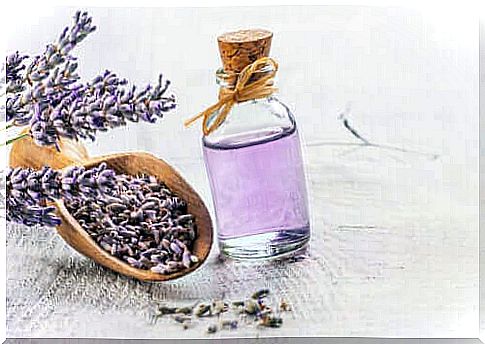6 Best Medicinal Plants That Have Been Scientifically Proven To Work

There is a wide range of medicinal plants for which there is scientific evidence of function. Therefore, experts have studied their components and properties, and it has been found that they are helpful in the treatment of some diseases.
An article in the Journal of Advanced Pharmaceutical Technology & Research even states that a wide range of drugs considered essential are made from herbal extracts. However, some value the properties of plants in their natural form more.
What are the 6 best medicinal plants? Keep reading to find out!
Top 6 Medicinal Plants with Scientific Evidence
Medicinal plants have been used since ancient times to treat various diseases. Over time, numerous scientific studies have been conducted to test their properties.
Scientific studies have helped to determine at what doses they are safe, what can cause side effects, and in what situations they are contraindicated. The list of medicinal plants is quite extensive, but next we present the 6 best medicinal plants with scientifically proven health-promoting properties.
1. Chamomile

This medicinal plant has many uses. As stated in an article in Molecular Medicine Reports , its main uses are related to relieving anxiety, stress and stomach problems. However, some people also use it for pain and skin problems.
The plant is known for its small white flowers. It is usually found in two varieties: “German chamomile” and “Roman chamomile”. It is often ingested in the form of tea, but is also available as essential oils and extracts in addition to other ingredients.
In a review published in the Electronic Physician Journal , it is mentioned as a “multi-purpose plant” because evidence has shown that it has anti-inflammatory and antimicrobial properties, as well as antidepressant, diarrhea and antidiabetic and liver protective properties. It is used e.g. for the treatment of the following diseases / disorders:
- Osteoarthritis of the knee
- Ulcerative colitis
- Premenstrual syndrome
- Gastrointestinal disorders
- Anxiety and stress
Doctors consider chamomile safe for most adults. However, experts recommend avoiding excessive consumption. In addition, allergic reactions and interactions with anticoagulants have been reported.
2. Lavender
Lavender is one of the most popular and common medicinal plants for which there is scientific evidence of its effectiveness. It is especially useful because of its sedative properties, it can help reduce the symptoms caused by stress and anxiety. A study published in the journal Mental Health Clinician supports these properties and finds that it has a beneficial effect and is safe to use.
Its natural oils support the treatment of anxiety disorders without causing addiction or significant side effects. The European Medicines Agency (EMA) has approved the use of lavender for this purpose.
Other possible uses:
- As an antibacterial and antifungal
- Smooth muscle relaxant (carminative)
- Sedative and antidepressant
- Skin caregiver for burns and insect bites
3. Sun hat
Sun hat extracts are fairly well known to experts and the general public. In addition to its striking purple flowers, people have used this plant in the form of teas, juices and extracts to strengthen the immune system and improve health.
A study by Pharmacognosy Reviews highlights that it is an herb with immunostimulatory and anti-inflammatory properties.
More specifically, people use it to treat the flu, colds and other respiratory diseases. It also acts as a pain reliever in cases of teeth, intestines, skin diseases and arthritis, among other diseases.
There are disagreements about its possible side effects. Some experiments have found it to be safe, however, others have found that it can cause side effects such as stomach pain and allergies. Therefore, use it with caution.
4. Ginkgo biloba
Ginkgo biloba is known for its many medicinal uses and there is scientific evidence for its properties. It is an herb that is widely used by people in oriental medicine, as capsules, tablets, extracts, in the form of leaves and the like.
Recent studies show that this plant has shown potential as an ally in the prevention of age-related diseases. In particular, it appears to promote brain health by reducing the risk of dementia.
On the other hand, another study has found that ginkgo biloba also contains ingredients that contribute to the treatment of type 2 diabetes. However, more research is needed to evaluate its safety and effectiveness.
So far, the following side effects have been reported :
- Liver damage that makes it necessary to control liver enzymes.
- Interaction with anticoagulants and other drugs.
- Its seeds are toxic if swallowed.
- Experts associate long-term overuse with an increased risk of thyroid problems and liver cancer (observed in rats).
- Finally, in some people, it causes headaches, gastrointestinal upset, dizziness, or allergic reactions.
5. St. John’s wort

St. John’s wort is a medicinal plant that has sedative effects because it has antidepressant and anxiolytic functions. A review article published in Systematic Reviews states that it contains hypericin and hyperforin.
These substances are active substances found in antidepressants and are popular, among other things, for relieving anxiety. It also has antibacterial and anti-inflammatory effects and is used to treat menopausal symptoms.
The following side effects may occur:
- Agitation
- Burning and tingling sensation
- Dizziness
- Photosensitivity
- Irritation
- Stomach upset
6. Peppermint
When we talk about the best medicinal plants, we can’t leave peppermint off the list. Due to its properties, it is one of the most commonly used herbal ingredients in the world. It is commonly used to soothe gastrointestinal discomfort, headaches and respiratory diseases.
In this regard , a scientific article published in the journal Phytotherapy Research states that peppermint leaves condense phenolic components such as rosemary acid and various flavonoids, the combination of which helps maintain health. It has anti-inflammatory, antioxidant, antimicrobial, analgesic and immune enhancing effects.
Overall, its moderate use is safe for most healthy adults. However, an excessive amount can be harmful. This medicinal plant may also interfere with the functions of some medicines. If you have regular medication on site, it is best to talk to your doctor before using peppermint.
Use caution when using medicinal plants
Science has shown the health-promoting properties of many of the above plants. However, this does not mean that we can use them as a first option in the treatment of diseases. For the most part, they work to relieve the symptoms of diseases.
Their effects are usually temporary and not always as the person expects. In any case, the evidence shows that they can benefit many people. Therefore, it is a good idea to try them to promote your own health.
If you are unsure, ask your doctor for advice.









